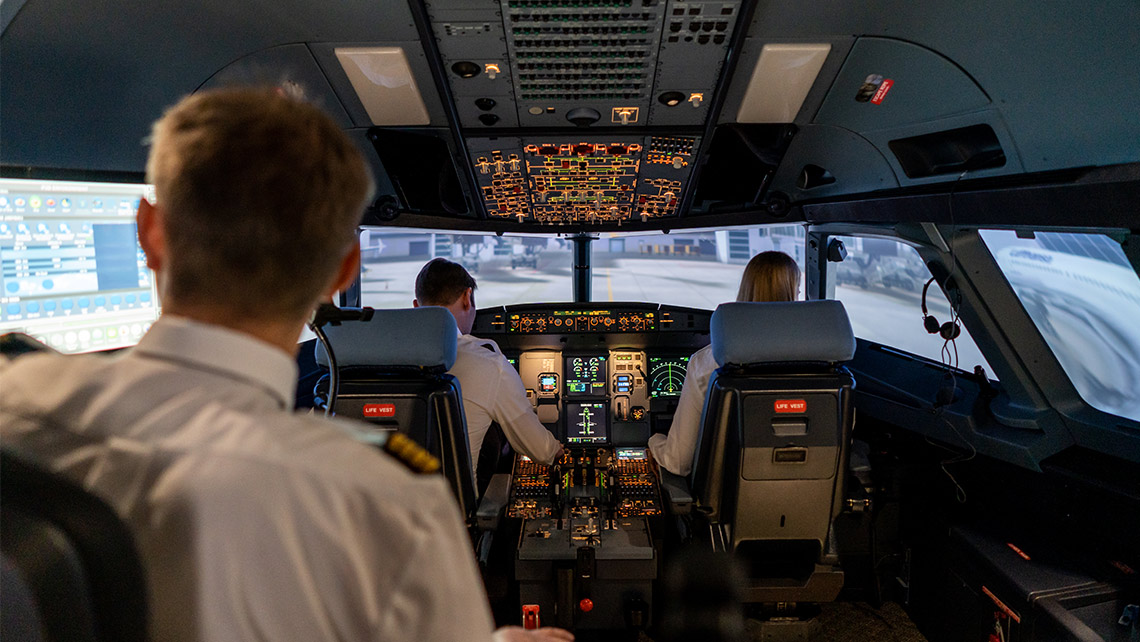The Scope of Aviation Training
Aviation training is essential for maintaining safety and operational standards in the industry. It includes various disciplines and offers numerous career paths. Here’s an overview of what aviation training involves and the opportunities it presents:
1. Pilot Training
Pilot training is one of the most sought-after courses within aviation. It includes several stages, such as obtaining a private pilot license, followed by an instrument rating, commercial pilot license, and ultimately an airline transport pilot license. Pilot courses focus on flight theory, navigation, and hands-on flying experience under the guidance of certified instructors.
-
Pilot School Near Me: Finding a local pilot school is crucial for those who want to start their journey in aviation. These schools provide foundational knowledge and practical flying experience.
2. Aircraft Maintenance Training
Aircraft maintenance is vital for ensuring the safety and airworthiness of planes. Training programs focus on teaching mechanics the intricacies of aircraft systems, engines, and electronics. Aircraft maintenance in {city} provides detailed insights into maintaining different types of aircraft, from commercial planes to cargo charters.
-
Aviation Mechanic Training Near Me: This training is essential for those interested in the technical side of aviation, emphasizing diagnostics, repairs, and preventive maintenance.
3. Aviation Safety Training
Safety is paramount in aviation. Aviation safety training in {city} covers emergency procedures, risk management, and compliance with aviation regulations. This training is crucial for pilots, cabin crew, and ground staff to handle emergencies effectively.
4. Flight Training
Flight training is an integral part of becoming a pilot. It includes simulator sessions, solo flights, and complex maneuver practice. Flight training in {city} offers aspiring pilots the chance to hone their flying skills and gain confidence in handling various aircraft.
5. Aviation Business Degree
An aviation business degree online prepares students for roles in airline management, aviation logistics, and business operations. This degree is ideal for those looking to enter the administrative and strategic side of the aviation industry.
6. Online Aviation Colleges
Online aviation colleges provide flexible learning options for students who cannot attend traditional classes. These institutions offer courses in aviation management, safety, and maintenance, allowing students to balance their education with other commitments.
7. Aviation Training Videos
Training videos are valuable resources for both new and experienced aviation professionals. They provide visual insights into complex procedures, safety protocols, and maintenance tasks.
Competitive Analysis of Aviation Training Providers
1. Embry-Riddle Aeronautical University
Embry-Riddle is renowned for its comprehensive aviation programs, offering degrees in aeronautical science, aviation maintenance, and aviation business. They stand out for their high-tech simulators and extensive alumni network.
2. Flight Safety International
FlightSafety provides advanced pilot training and simulator-based learning. They are known for their focus on safety and operational excellence, offering courses for various aircraft types.
3. National Center for Aviation Training
The National Center for Aviation Training specializes in mechanic training and aviation technology programs. Their hands-on approach and industry partnerships offer students practical experience and job placement opportunities.
4. ATP Flight School
ATP Flight School offers accelerated pilot training programs, focusing on fast-tracking students to become commercial pilots. Their structured courses and airline partnerships make them a preferred choice for aspiring pilots.
5. University of North Dakota
The University of North Dakota provides aviation degrees with a strong emphasis on research and innovation. Their programs are well-regarded for integrating technology and business aspects of aviation.
The Importance of Aviation Training
1. Ensuring Safety
Training is crucial for maintaining high safety standards in aviation. It equips professionals with the knowledge to prevent accidents, manage emergencies, and comply with regulatory requirements.
2. Enhancing Skills
Aviation training enhances technical and operational skills, from flying precision to mechanical troubleshooting. It ensures professionals are adept at handling their responsibilities effectively.
3. Career Advancement
Comprehensive training opens doors to various career paths in aviation, from piloting and maintenance to management and logistics. It provides the credentials necessary for career progression.
4. Meeting Industry Demand
The aviation industry is constantly evolving, with new technologies and regulations. Training keeps professionals updated on industry trends, ensuring they meet current demands.
Planning Your Aviation Training Journey
1. Choosing the Right Program
Selecting the appropriate training program is crucial. Consider your career goals and interests, whether it's piloting, maintenance, or aviation management, to find the best fit.
2. Evaluating Schools and Colleges
Research schools and colleges offering aviation training. Look for accredited institutions with strong industry ties, like the National Center for Aviation Training.
3. Understanding Costs and Funding Options
Aviation training can be costly. Explore funding options, scholarships, and financial aid to support your education.
4. Considering Online and Hybrid Courses
Online and hybrid courses offer flexibility for those balancing work or personal commitments. They provide access to quality training without geographical constraints.
5. Utilizing Training Resources
Take advantage of training resources like videos and simulators to enhance your learning experience and gain practical insights.
Tips for Success in Aviation Training
1. Stay Updated on Industry Trends
The aviation industry is dynamic. Stay informed about technological advancements and regulatory changes to keep your skills relevant.
2. Network with Industry Professionals
Networking is crucial for career advancement. Engage with professionals, attend seminars, and join aviation forums to build connections.
3. Practice Regularly
Consistent practice is key to mastering aviation skills. Whether flying or maintaining aircraft, regular hands-on experience builds confidence and competence.
4. Seek Mentorship
Find mentors who can provide guidance and support throughout your training journey. Their insights and experience are invaluable.
5. Focus on Safety
Safety should always be a priority. Emphasize learning and adhering to safety protocols to ensure the well-being of passengers and crew.
Aviation training is essential for building a successful career in this exciting and dynamic industry. Whether you aspire to be a pilot, mechanic, or aviation manager, comprehensive training programs provide the skills and knowledge needed to excel. By choosing the right program, staying informed, and prioritizing safety, you can navigate your path in aviation and contribute to the industry's growth and innovation.

